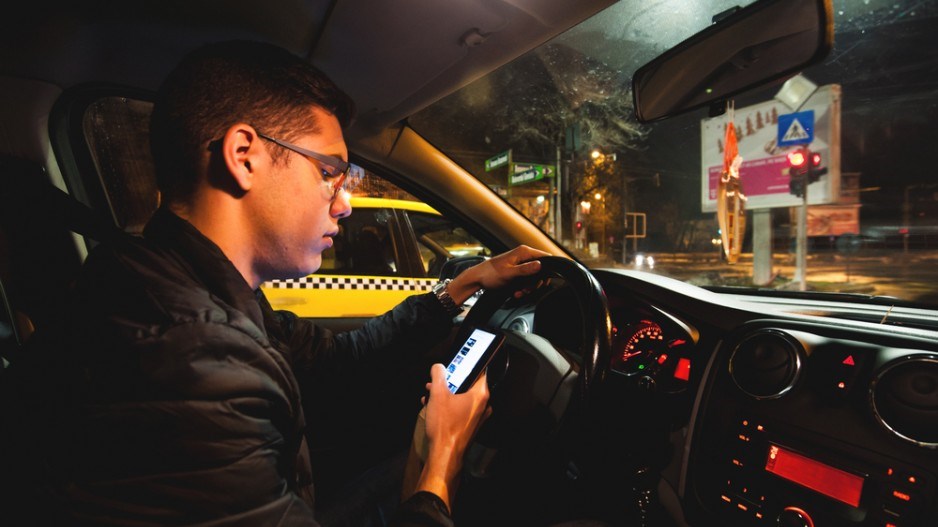In spite of the polite nature that is usually associated with anything Canadian, we seem to be losing patience with everyone when it comes to our country’s roads. In a recent Research Co. poll, half of Canadians (50%) believe drivers in their city or town are worse than five years ago.
The level of criticism toward the people behind the wheel is highest among Canadians aged 55 and over (62%), but drops among those aged 35 to 54 (47%) and those aged 18 to 34 (38%).
British Columbia leads all regions of the country as the province where the largest proportion of residents (64%) believe driving has not improved over the past five years. Atlantic Canadians are second in this unfortunate ranking (59%), followed by Albertans (53%) and Ontarians (51%).
In order to properly gauge what is making Canadians so critical of drivers in their municipality, we asked respondents to report if they had seen specific indicators of bad behaviour on the road in the past month. Seven in 10 Canadians (71%) say they witnessed a driver not signalling before a turn, a proportion that grows to 83% in British Columbia.
Three in five Canadians (61%) endured a car taking up two or more spots in a parking lot, a frustration that plagued 77% of those in Manitoba and Saskatchewan. Almost half (48%) saw a driver not stopping at an intersection. Once again, British Columbia was way worse than the national average, at 67%.
More than two in five Canadians witnessed cars turning right or left from an incorrect lane (45%) or had a “close call” while in their car, either being forced to slam on the brakes or steer violently to avoid a collision (42%).
In the past month, one in 20 Canadians (5%) experienced a car crash in a vehicle he or she was driving or was a passenger in. Across the country, only 16% of Canadians did not report any of these road setbacks, a proportion that reaches 26% in Quebec.
When it comes to assigning blame for bad driving behaviour, almost three in five Canadians (58%) say there are specific groups or people in their city or town who are worse drivers than others.
At first, it seemed we had stumbled upon an issue that united millennials and baby boomers across the country, with 60% of residents in each age group saying that there are some people in their community who are worse drivers than others. Generation X is slightly more nuanced (55%).
There is also a political rift. Fewer than half of Canadians who voted for the New Democratic Party in the last federal election (48%) point the finger at specific groups when it comes to bad drivers. This compares with 58% among Liberal Party of Canada voters and a whopping 70% for those who cast a ballot for Conservative Party of Canada candidates in 2015.
But, once again, the biggest differences are regional. While only 47% of Atlantic Canadians think some groups are responsible for the decline of driving prowess and etiquette, the proportion climbs to 58% in Ontario and 60% in Alberta. Once again, British Columbia is ahead, with 68%.
When asked to name specifically whom they refer to, 18% of respondents who had a specific group or people in mind chose not to reveal whom they thought about. But there was nothing stopping a sizable proportion of others from saying “young” (25%) and “old” (22%) are the worst drivers in their city or town.
“Women” (2%) and “men” (2%) shared equal proportions of blame, while other mentions included “Asians” (15%), “distracted” (10%), “trucks” (2%), “cab drivers” (2%), “dark skin” (1%) and, in an issue that seems to unite some British Columbians and Saskatchewanians, “Alberta licence plates” (1%).
The reaction from respondents outlines the quirky way in which our thoughts can operate. Drivers who had an opportunity to observe their perceived guilty party from the side fixated primarily on age, perceived ethnic origin and gender. Some who saw them from the back appear to remember only the “Wild Rose Country” licence plate.
Still, in a country where just about one in six people reports having experienced no tribulations on the road in the past month, maybe it’s time to take a look at ourselves (preferably not in the rear-view mirror while driving). •
Mario Canseco is the president of Research Co.




